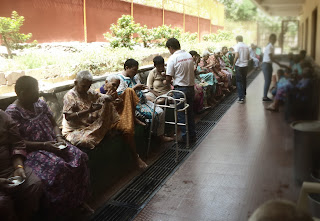Universal basic income
Universal basic income is something that advocates a minimum income or free wage that can be given universally, or some equal amount of money that can be distributed to some particular targeted section of the state or to everyone including children, men, women, old age people who are working or unemployed, retired or engaged in studies. It can be given to take care of the basic daily needs of the masses so that they can have a minimum standard of living such as food intake, afford a place to live, medicines etc. Governments across the world have thought about it. In India, in 8 selected villages of Madhya Pradesh, a pilot project was also conducted for some years to find out the socio-economic responses. Results are good and it showed that the number of people invested in white goods like Refrigerator, there was less deviation of funds to buy alcohol, engage in gambling etc. Government of India is already supporting the low income groups through various schemes of direct benefit transfer, procurement of food grain at cheap prices through National Food Security Act, Ayushman Bharat Scheme for taking care of the secondary and tertiary sector of health care by providing insurances up to Rs.5 Lakh, various LPG subsidies, fertilizer procurement etc. Also, there are states like MP, Odisha, Haryana, and Telangana who are giving cash benefits to small land-holding farmers. All these schemes can be subsumed and the case for Minimum basic income can be made. There is also a lot of criticism that these schemes do not reach the neediest because of large scale diversion and leakages & lack of awareness.
India’s nearly 42 crore people are also involved in the unorganized sector like various street vendors, agricultural activities. Only in recent years because of the drive of opening bank accounts we have managed to increase the reach of the banking sector o some margin. Still, there is a challenge for bringing the banking sector closer to the remote villages. The government has made it possible to transact and save with the post offices up to 1 lakh which has its veins in the internal parts of the country. All these steps are taken to pull out the daily wage workers from the web of debt cycle and high-interest rates through the local money lenders. They can take loans from the banks or avail themselves through the direct benefit transfers. A minimum wage could play a major role in such a case. We can uplift women who are housewives and till now their work is hardly recognized. Students who want to do higher studies can be a big taker. Most of the time they have to sacrifice their interest in studies either they could not afford it or because of some family situation.
There is also the concern that people will not work if minimum wages are disbursed to them. Besides cost is also a worry. We can take several steps for that like conducting surveys, differential wages based on individual needs or targeting only the neediest to start with. We can learn from other countries who are doing surveys and experiments on how to make the process more inclusive by asking better questions in surveys etc. More pilot projects should be conducted to study the effects of it instead of launching it country-wise.


Comments
Post a Comment